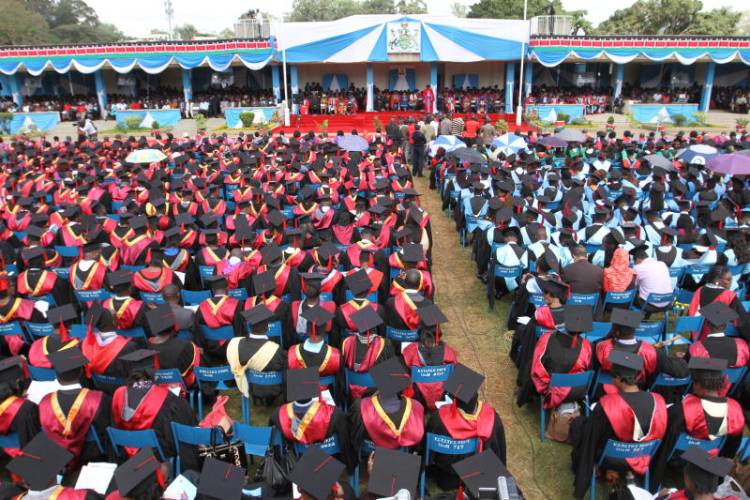×
The Standard e-Paper
Kenya’s Boldest Voice

A graduation ceremony in session. Last week, a special Education committee was formed to develop a policy on setting up an ‘elite’ university. [File, Standard]
On September 9, the State Department of Higher Education wrote a letter appointing a special committee to develop a policy on ‘Kenya elite universities recognition class’ aimed at establishing a ‘national university of Kenya.’